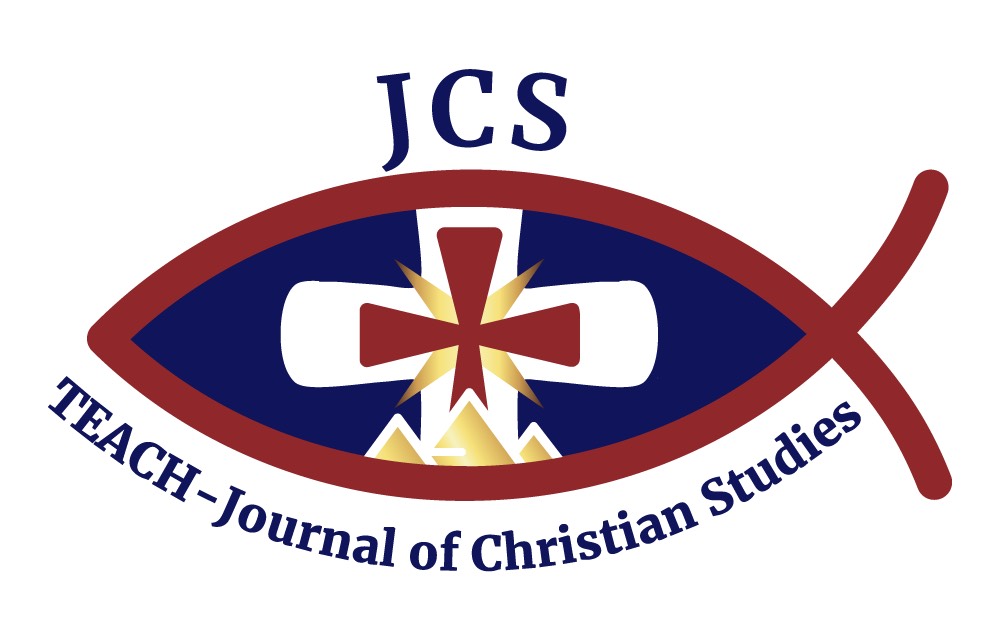TEACH - Journal of Christian Studies is no longer published on JAMS (MDPI publishing platform) as of 15.01.2022. Articles remain hosted at teach-christianstudiesjournal.jams.pub by courtesy of JAMS and upon agreement with the journal owner until the publications are transferred to a new website.
Editorial
TEACH JCS 2021, 1(1), 1; doi: 10.35995/teach-jcs1010001
Received: 15 Jun 2021 / Accepted: 22 Jul 2021 / Published: 21 Aug 2021
PDF Full-text (217kb) | XML Full-text
TEACH - Journal of Christian Studies (JCS) is an international peer-reviewed journal dedicated to publishing high quality reports, studies, and review articles covering all aspects of Christian Heritage and Sciences. The journal commissions high quality review articles and editorials from distinguished authors and
[...] Read more.
TEACH - Journal of Christian Studies (JCS) is an international peer-reviewed journal dedicated to publishing high quality reports, studies, and review articles covering all aspects of Christian Heritage and Sciences. The journal commissions high quality review articles and editorials from distinguished authors and also welcomes full length original research and review articles, concise reports and letters to the editor. Additionally, JCS aims at publishing well searched controversial issues, with academically balanced evidence-based opinion, consequently establishing a platform for international researchers and scientists to meet and exchange findings, opinions and ideas.
Full article
Research
TEACH JCS 2022, 1(1); doi: 10.35995/teach-jcs1010000
Received: 27 Dec 2021 / Accepted: 22 Feb 2022 / Published: 3 May 2022
PDF Full-text (238kb) | XML Full-text
TEACH JCS 2021, 1(1), 2; doi: 10.35995/teach-jcs1010002
Received: 11 Oct 2021 / Accepted: 22 Nov 2021 / Published: 30 Nov 2021
PDF Full-text (2470kb) | XML Full-text
We attempted to study the hitherto unexplained phenomenon of the sung “a ”, for one note, at the end of an “A ” melody. We encountered this issue during singing the word “Alleluia” in the Coptic musical culture. We found that
[...] Read more.
We attempted to study the hitherto unexplained phenomenon of the sung “a ”, for one note, at the end of an “A ” melody. We encountered this issue during singing the word “Alleluia” in the Coptic musical culture. We found that the transmission from “A ” to “a ” serves as an intermediary step before continuing to the “L”. It may also be an adopted habit by some singers, rather than a consistently inherited musical design with a clear pattern. However, further research is encouraged to decipher this phenomenon.
Full article
